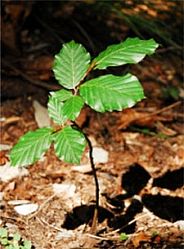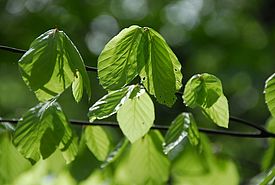BuKlim: European beech in a changing climate
2012 - 2014
FinancingContents


European Beech (Fagus sylvatica) is commonly considered to be less tolerant to drought. Hence, there is a potential risk of habitat loss for this tree species as climate scenarios predict more frequent and intense summer droughts. However, beech provenances may differ in their humidity requirements due to local adaptation to drought. To date, there is no information on such differences among Swiss beech provenances although some marginal beech populations in the inner-alpine valleys of the Rhone and the Rhine grow under exceptional dry conditions. The BuKlim project aims to study whether these marginal populations are better adapted to drought than populations growing under humid conditions. Sixty four beech saplings were taken from sixteen mother trees in twelve selected populations and transplanted to the WSL model ecosystem facility (MODOEK). The saplings will be subjected to experimentally controlled soil water shortage to evaluate their morphological and physiological responses to drought and thus assess the drought tolerance of the original beech populations. Additionally, growth responses of the corresponding mother trees to natural drought will be studied in the original beech populations by using a dendroecological approach. The results of the project may contribute to a better understanding of adaptation processes in long living trees and provide useful information for future silvicultural strategies of European beech under the conditions of climate change.
Multimedia ¶
- Die Buche unter dem Einfluss des Klimawandels - sind heimische Buchenherkünfte für eine klimagerechte Waldwirtschaft geeignet? (Zürcher Wald 3/2014)
- Zeitreise in künftige Trockenperioden (Sonntagszeitung, 24. August 2014)

